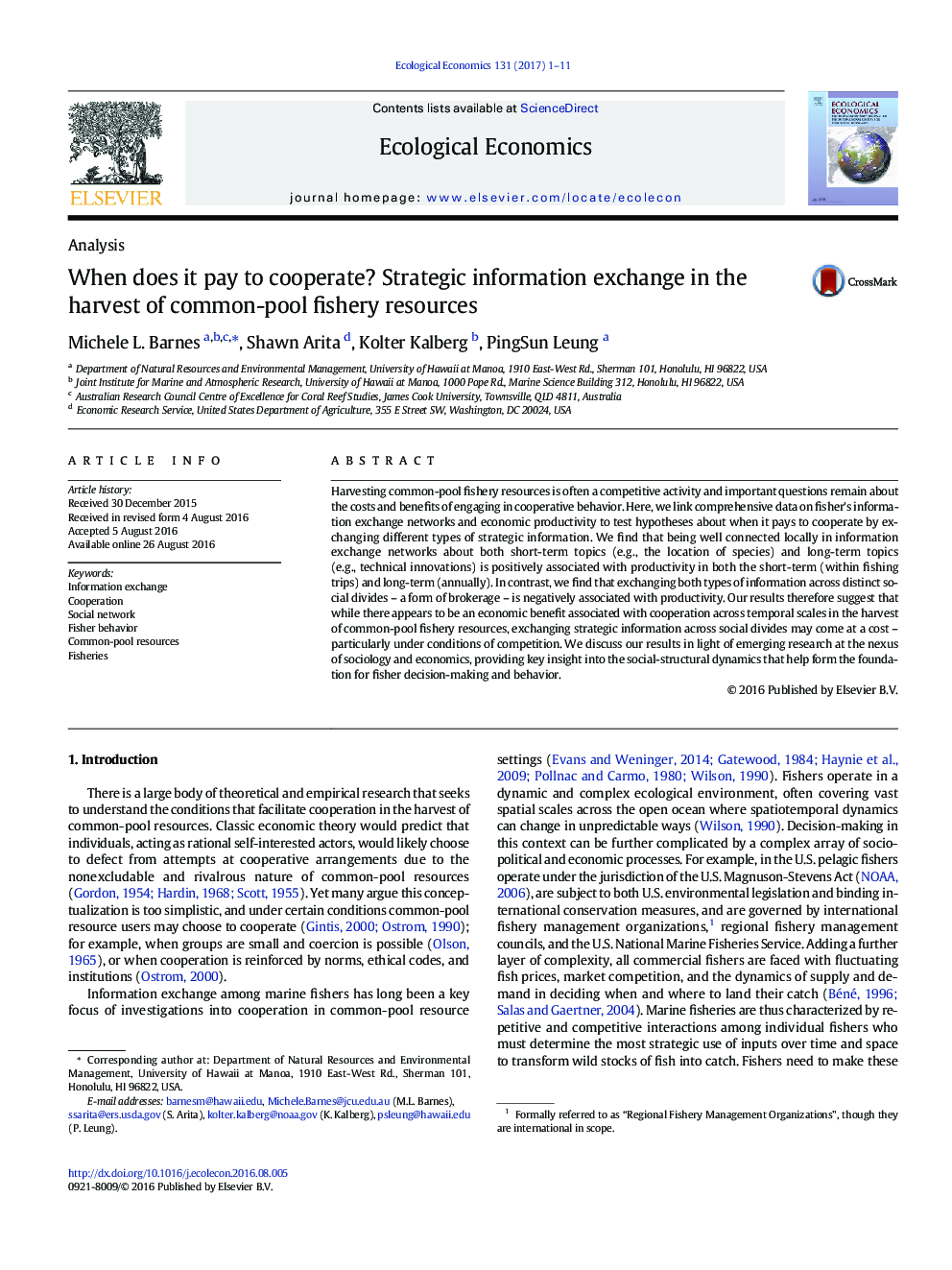| Article ID | Journal | Published Year | Pages | File Type |
|---|---|---|---|---|
| 5048854 | Ecological Economics | 2017 | 11 Pages |
Harvesting common-pool fishery resources is often a competitive activity and important questions remain about the costs and benefits of engaging in cooperative behavior. Here, we link comprehensive data on fisher's information exchange networks and economic productivity to test hypotheses about when it pays to cooperate by exchanging different types of strategic information. We find that being well connected locally in information exchange networks about both short-term topics (e.g., the location of species) and long-term topics (e.g., technical innovations) is positively associated with productivity in both the short-term (within fishing trips) and long-term (annually). In contrast, we find that exchanging both types of information across distinct social divides – a form of brokerage – is negatively associated with productivity. Our results therefore suggest that while there appears to be an economic benefit associated with cooperation across temporal scales in the harvest of common-pool fishery resources, exchanging strategic information across social divides may come at a cost – particularly under conditions of competition. We discuss our results in light of emerging research at the nexus of sociology and economics, providing key insight into the social-structural dynamics that help form the foundation for fisher decision-making and behavior.
